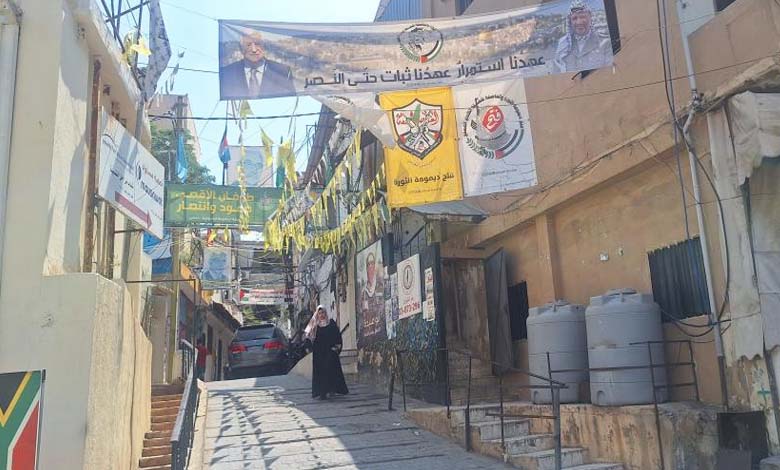Disarming Palestinian Camps in Lebanon: A Historic but Challenging Step

Just days before the Lebanese army is expected to present the government with an executive plan to consolidate all arms under state control, the process began on Thursday with the handover of weapons from Palestinian camps.
This marks the first stage of a plan jointly approved by Lebanese and Palestinian authorities about three months ago.
-
Lebanon Dismantles Hamas and Jamaa Islamiya Training Camp
-
Lebanese Army Uncovers Israeli Spy Devices Hidden with Precision
From the Bourj el-Barajneh camp in Beirut, Lebanese authorities began receiving batches of weapons stored in Palestinian camps in the capital.
Ahmad Majdalani, member of the Executive Committee of the Palestine Liberation Organization (PLO), described the move as “historic and highly significant,” expressing hope that it would be “properly framed to strengthen the authority of the state across all Lebanese territory.”
Majdalani said: “This step is the first phase, and it will continue over a defined period, with the weapons handed over as a deposit to our brotherly Lebanese army.”
He stressed that the move “also preserves the social, economic, and civil rights of the Palestinian people until their return to their homeland, in accordance with UN Resolution 194.”
-
Following Approval from Iran and Israel: Ceasefire Negotiations in Lebanon Enter Final Stages
-
Israel plans to expand its ground operations in southern Lebanon
A Binding Decision
On potential challenges, Majdalani clarified: “We are talking here about weapons under the control of the State of Palestine, the PLO, and its factions. These are directly involved in the process.”
He added: “Weapons held by Hamas, Islamic Jihad, and others are tied to regional agendas. Handling them is therefore the responsibility of the Lebanese government.”
He emphasized that any decision by the Palestinian president on this matter is “binding and enforceable on all factions within the PLO.” He reaffirmed their commitment to “Lebanon’s security, stability, and sovereignty,” hoping the move would strengthen state authority.
-
Washington Plans to Deploy Fighters and Destroyers in the Region to Defend Israel
-
Gaza Setback and the Success of Israeli Spies: An Analysis of Hezbollah Infiltration
Resistance Expected
Richard Kouyoumjian, former minister and head of external relations for the Lebanese Forces, acknowledged that some resistance may arise but stressed that all factions would eventually comply: “The largest faction, Fatah, has started. The others will follow.”
He noted that on August 7, the Lebanese Cabinet decided to place all weapons under state authority, mandating the army to carry out this mission by the end of 2025. Even Hamas and other factions, he argued, will have to yield.
Prime Minister Naufal Salam welcomed the start of the handover, writing on X: “I welcome the launch of the handover of Palestinian weapons, which began at Bourj el-Barajneh camp in Beirut. A first batch has been delivered and entrusted to the Lebanese army.”
-
Beirut under Bombardment: Paths of Death and Hope Meet in the Night of the Stricken City
-
Sinwar flirts with Nasrallah with a ‘rare’ message: Objectives and timing mystery
A Test for the Lebanese State
Retired military analyst Khaled Hamade viewed the move as “raising questions.” He noted that some groups are refusing to disarm, particularly in camps like Ain al-Hilweh, where factions aligned with Iran and the former Syrian regime are entrenched. This, he argued, is “a real test for the Lebanese state” that could even lead to clashes.
A statement circulated by Lebanese media stressed that what happened in Bourj el-Barajneh “is strictly an internal Fatah matter and unrelated to the broader issue of Palestinian weapons in the camps.”
-
US and Germany as Exceptions: 6 Western Countries Restrict Arms Sales to Israel
-
United States and the Middle East: A Crucial Week to Extinguish the Flames of War and Monitor Developments
Palestinian presidential spokesman Nabil Abu Rudeineh confirmed that an agreement was reached with the Lebanese state to deposit weapons with the army. The process is expected to unfold gradually and extend to other camps, with the weapons documented and stored under agreed security and logistical arrangements.
This initiative intersects with the Lebanese Cabinet’s recent decision mandating the army to draft a plan for disarming all armed groups, including Hezbollah. It thus ushers in a politically and security-sensitive phase, raising questions about the state’s ability to navigate such a complex process amid domestic and regional challenges.












